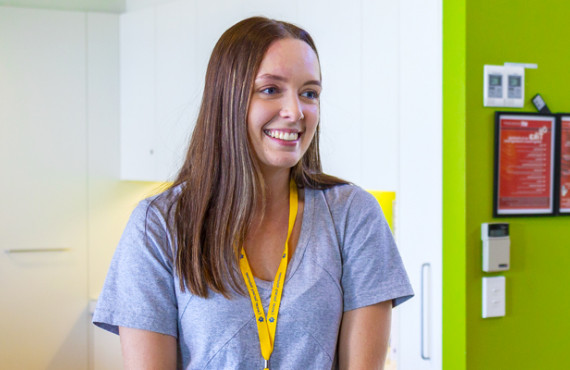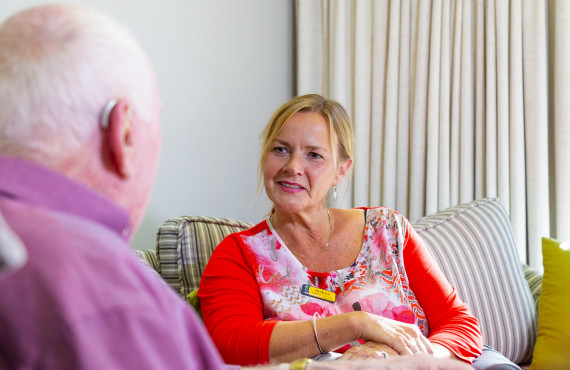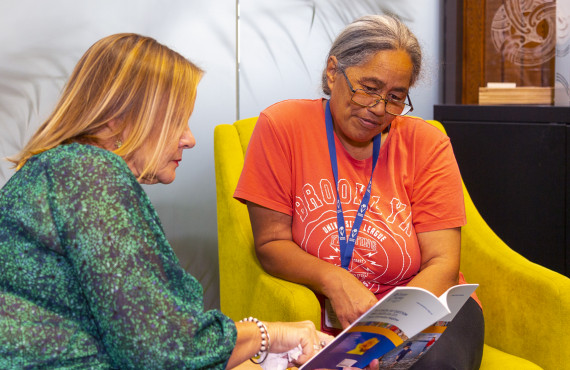Everyone copes in their own way when they hear they have cancer.
What are emotions?
Emotions are how you ‘feel on the inside’.
Emotions can have a physical effect on your body, affecting your spiritual wellbeing and your relationships with family/whānau and friends.
Cancer often involves a sense of loss:
- the loss of good health
- a change in appearance
- changes in your lifestyle
- a reduction in income
- having to rely on others
- changes in your relationships
- and a shift in how you see yourself
This can be a time of grief as you adjust to loss and learn to live with the changes a cancer diagnosis can bring to your life.
It is common to experience strong emotions at this time that will change often.
Emotions can be experienced differently depending on your own life-experiences and culture.
If you have a history of anxiety or depression, make sure your treatment team is aware of it so they can make sure you get the support you need.
There is no right way to feel
You might feel a range of emotions when you hear that you, or someone you love, has cancer.
Understanding how you feel can be helpful. Even though you may feel distressed, it does not mean you are not coping.
There is no right or wrong way to feel. Everyone is different and you will cope with things in your own way and in your own time.
Finding hope
Finding hope is having a sense of optimism about the future.
Cancer treatments are improving and many people are living well, for longer.
It can be hard to stay hopeful about your future all the time, and what you hope for may change.
It is OK to have days when you feel sad or scared about what lies ahead.
You may like to talk to your treatment team about what cancer means for you. Knowing more about your cancer can be useful.
Tips to help you cope with change
• keeping up your usual daily activities when you can help you feel more in control, give you a sense of achievement, and take your mind off cancer
• take time out for some fun - listen to your favourite music or watch a funny movie.
• remember it’s OK to have bad days and to feel down every now and then
• it may help to learn more about your cancer
• let your treatment team know if you are in pain or having trouble sleeping or eating
• keep active ‒ a short walk every day can help
• spend time in nature
• learn relaxation techniques such as breathing, yoga, romiromi, mirimiri, fofo, or massage to release tension and anxiety
• eat well
• spend time with supportive family/whānau and friends
Talking to others
Ways to share how you are feeling when you do not feel like talking
Sometimes it can be hard to talk about how you are feeling.
To express your feelings without talking, you could try:
- journaling, emailing or blogging
- drawing or doing something creative
- leaving notes on your fridge about how you are feeling
- scrapbooking
What to do when people stay away
When people hear you have cancer, relationships can change.
Some people will be very supportive, while others may withdraw. People have their own reasons for staying away. They may not be able to cope with their feelings or not know how to respond.
If you feel hurt by this sort of reaction, a conversation may clear the air. Sometimes accepting that people are unable to offer their support can help you move forward.
Worrying about the cancer coming back
Feeling anxious about cancer coming back (recurring) is common for people after cancer.
For some people this fear affects their ability to enjoy life and make plans for the future.
You may feel more anxious at times, such as on the anniversary of the day you were diagnosed or when you hear about cancer in the media.
Many people who have had cancer say that, with time, they feel less anxious.
You could talk to your treatment team or doctor about recognising the differences between normal aches, pains, and sickness and cancer symptoms.

We are here to help and support you and your whānau through cancer diagnosis, treatment and recovery…

We have free counselling and psychological services for people with cancer and their family/whānau.

Our support team are here to help you through your cancer treatment and after.
We know that going through cancer is tough and can raise many questions. You are not alone.
We have health professionals to answer your questions and provide the support you need.
Get in touch
